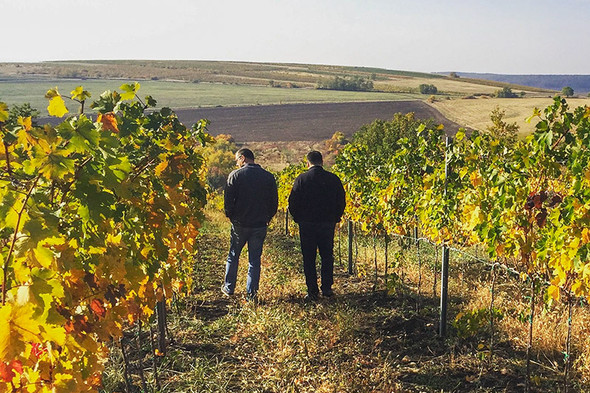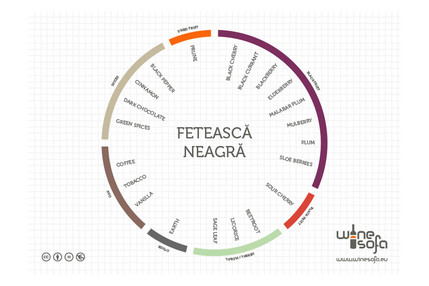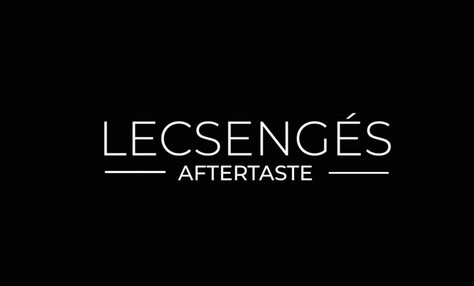The Bükk wine region is one of Hungary’s most little known wine spots, which is especially painful in light of the fact that some of its vineyards almost abut those of the neighbouring Eger wine region. You can already gather from this that it lies on the southern and eastern slopes of the Bükk Mountains, bordered by the Eger wine region to the west and the Sajó and Hernád valleys to the east.
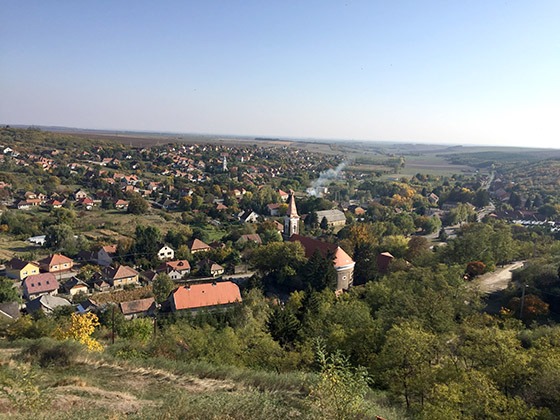
Tibolddaróc, a beautiful village of the region by Daniel Ercsey
The vineyard register records an incredible 18,000 hectares, but according to the winemakers, of the actual 1,750 hectares of vineyards, they would be lucky if they scrape together 500 hectares. The winemakers’ tragic situation is further exacerbated by emigration, ageing vineyards and the history of the wine region. This meant on the one hand, a region producing grapes in the background for the Eger wine region and on the other, that the base wine for Törley sparkling wine often came from Bükk grapes. Thus, no really financially strong wineries emerged in the region, indeed there were hardly any wineries as everyone was set up just for grape production.
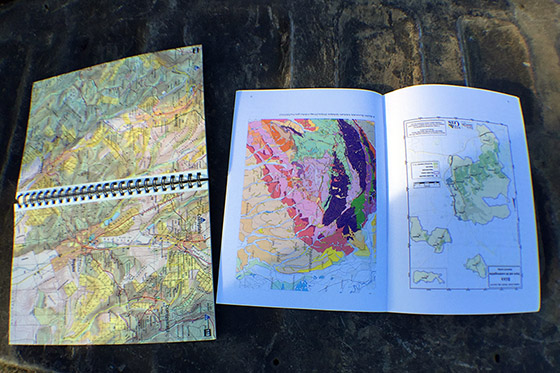
Topo map and geo map before our trip to the vineyards by Daniel Ercsey
According to the vineyard register, the following towns and villages are considered I and II class: Aszaló, Barabás, Bogács, Borsodgeszt, Bükkaranyos, Bükkzsérc, Cserépfalu, Cserépváralja, Edelény, Emőd, Harsány, Kács, Kisgyőr, Kistokaj, Mályi, Megyaszó, Mezőkövesd, Miskolc, Nyékládháza, Sály, Szikszó, Tard, Tibolddaróc and Vatta. The vineyards are protected against the cold winds from the north by the Bükk Mountains, while the southernmost point of the wine region is Mezőköesd and its surroundings.
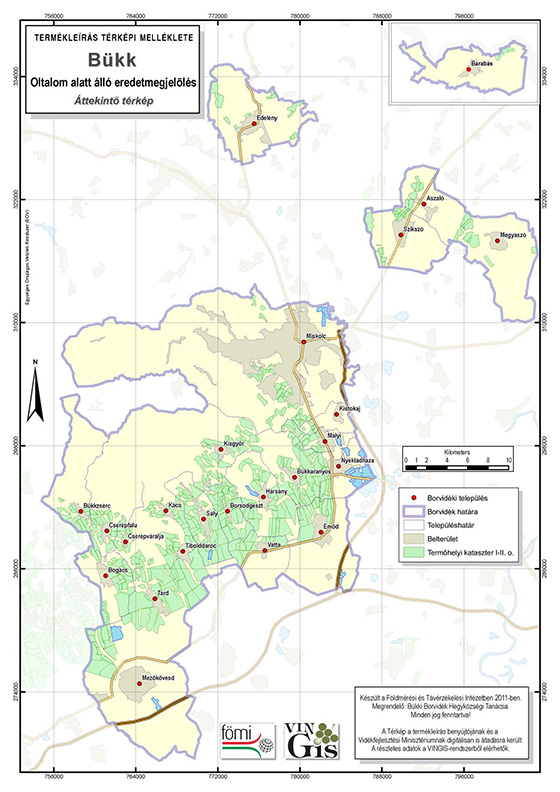
The official map of the region by FÖMI
Similarly to the Eger and Tokaj wine regions, wine is also stored here in cellars, at times huge, carved into the rhyolite tuff. Some of their walls and pillars are decorated with valuable works by folk stonemasons (for example in Cserépfalu). The famous Miskolc wine was aged in cellars thickly covered in noble mould. The 100-metre-high Avas Hill was once covered in verdant vineyards, with more than a thousand cellars carved into its sides at the foot of the hill.
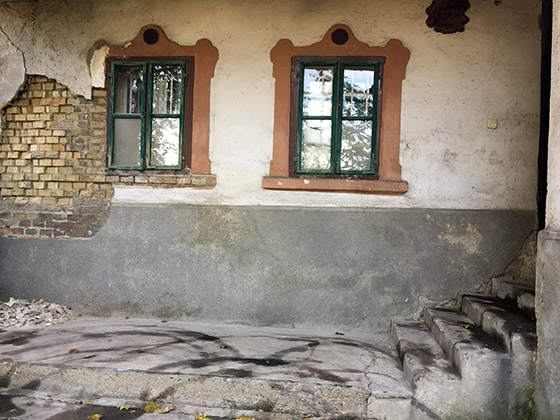
Old press house in the Avas Hill by Daniel Ercsey
Bükkalja was part of the Miskolc wine region that had already disappeared in the 20th century; it has been independent since 1970 and is slowly embracing all the members of the former Miskolc wine region, whether within the Bükk or not.... (Megyaszó, Kistokaj, Edelény, but also the part near the Ukrainian border on Kaszony Hill belonging to Barabás).
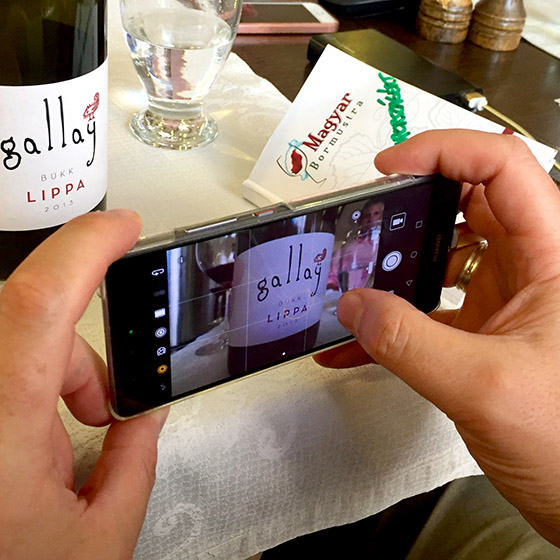
Let's taste some wine! (Photo: Daniel Ercsey)
An association for the Bükk wine region
Last August, the winemakers in Bükk announced that they had founded an association which had three important goals.
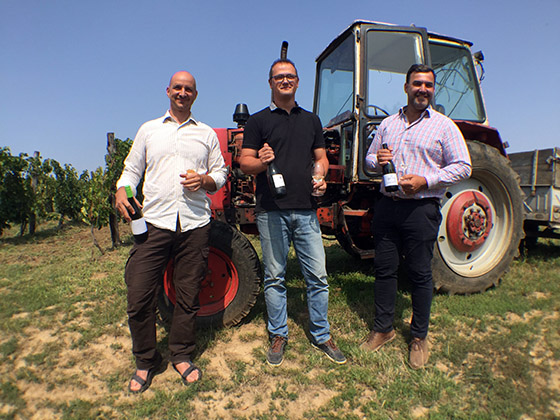
The founders of the Association by Daniel Ercsey
Firstly, they want to alter the wine region’s product description, secondly, they wish to carry out professionally substantiated trials on the wine region’s varieties and thirdly, they want to explore the potential inherent in the Bükk region’s vineyards. The fourteen founding members do not rule out further expansion. Their current activities are being carried out by working groups established for 6 and 18 months, and their results will be presented to the association.
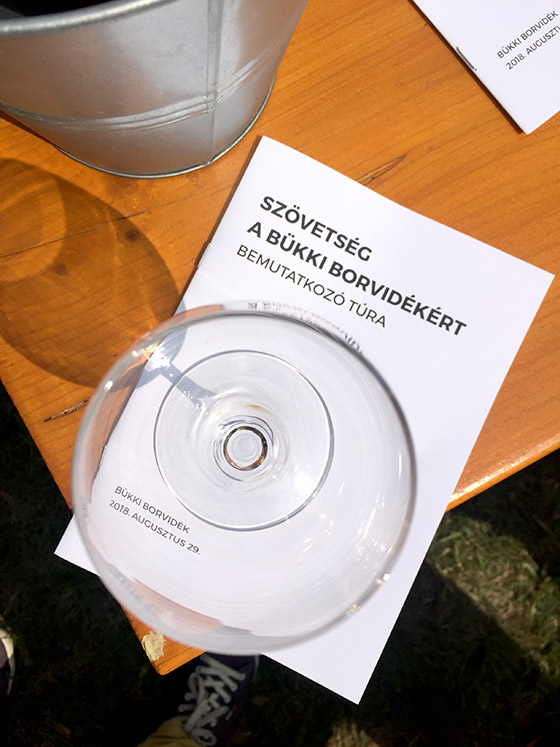
Photo: Daniel Ercsey
Anyone who accepts their rules can join the two-tier system (Classic Bükk, Terroir Bükk). The system, although operating within the framework of existing regulations on origin and quality protection, lays out much stricter voluntary conditions, including conversion to organic farming, strict yield restriction and evidence that they themselves grow Carpathian Basic varieties. Subsequently, the finished wines will also have to pass a two-step tasting panel before they can use the name Terroir Bükk. Classic Bükk is intended to represent everyday Bükk wines made from Bükk grapes.
The deserted villages, the abandoned cellars and vineyards and the remains of former terraces show that nobody can hope for salvation under the banner of mass production. We cannot expect the younger generation to follow in the footsteps of their fathers in such circumstances.
This statement, although sad, however, lays out a precise vision. We hope that they will succeed in making a difference, in bringing the vineyards back to life and ensuring that people do not leave nor return to deserted countryside.
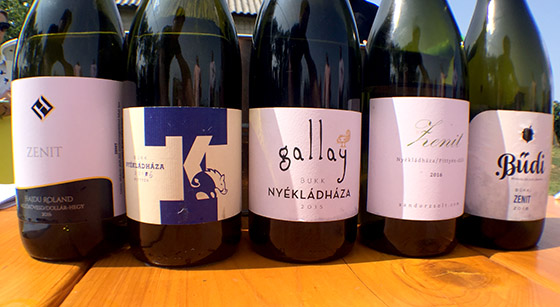
Five wines, 5 Zenit from Bükk (Photo: Daniel Ercsey)



